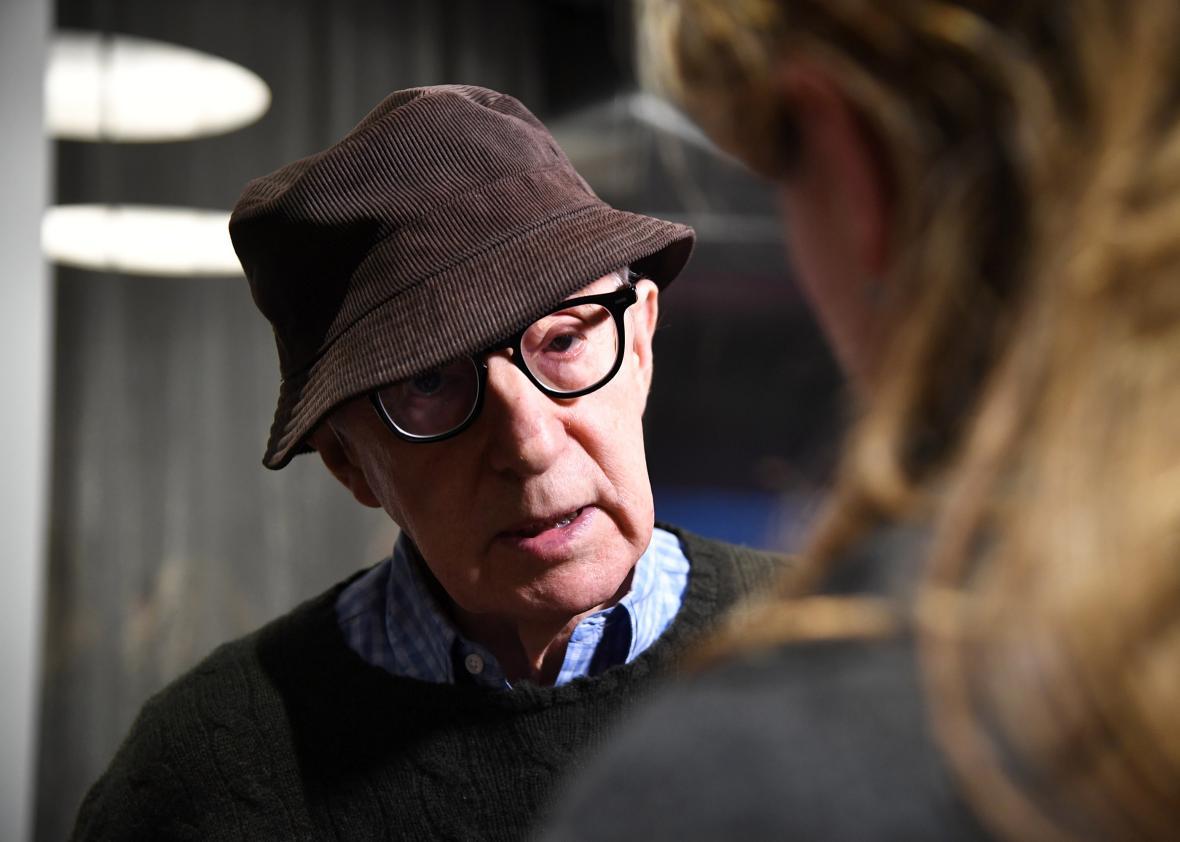As the fallout from October’s Weinstein allegations continues to trickle down throughout Hollywood and beyond, and the women and men who have come forward receive deserved praise for being ready and willing to share their experiences with the world, it can sometimes be all too easy to forget the people before them who have done the same. In a 2014 New York Times open letter, for instance, Dylan Farrow wrote publicly for the first time of her allegations against her adopted father Woody Allen, who she says sexually assaulted her when she was 7 years old. (Allen has always denied the accusations against him. While a judge denied Allen custody and visitation rights of Dylan, the case was dropped because a prosecutor—who stated he had “probable cause” to charge Allen—deemed Dylan too young to handle a long, drawn out trial.)
She described the alleged molestation in detail, and near the end of her piece, turned her attention to the actors who had recently worked with Allen despite the accusations being well-known throughout Hollywood: “What if it had been your child, Cate Blanchett? Louis CK? Alec Baldwin? What if it had been you, Emma Stone? Or you, Scarlett Johansson? You knew me when I was a little girl, Diane Keaton. Have you forgotten me?”
And yet, in our current #MeToo moment—and even as Louis CK sees his own star swiftly fall after making an homage to Allen that seemed to blatantly implicate his own misdeeds—Allen remains generally unscathed in the public eye. His own terrible, bizarrely revealing movie, Wonder Wheel, was released last week and is in the midst of an awards season campaign. And so, in a new op-ed for the Los Angeles Times, Farrow asks the question that’s been on the minds of many of us:
Why is it that Harvey Weinstein and other accused celebrities have been cast out by Hollywood, while Allen recently secured a multimillion-dollar distribution deal with Amazon, greenlit by former Amazon Studios executive Roy Price before he was suspended over sexual misconduct allegations?
Farrow answers that query for herself, accusing Allen of using his public relations team and lawyers to create a “deliberate fog” around the details of the case, which have been misreported in many stories over the years. She turned again to actors who have continued to work with Allen—Kate Winslet, Blake Lively, and Greta Gerwig—only this time, she used their public statements about the Weinstein effect and contrasted it with their comments on working with Allen, to highlight their incongruence.
Discussing Weinstein, Wonder Wheel star Kate Winslet said, “The fact that these women are starting to speak out about the gross misconduct of one of our most important and well-regarded film producers, is incredibly brave and has been deeply shocking to hear.” Of Allen, she said “[…] As the actor in the film, you just have to step away and say, I don’t know anything, really, and whether any of it is true or false. Having thought it all through, you put it to one side and just work with the person. Woody Allen is an incredible director.”
The effect is damning, but Farrow also seems to suggest that she can understand why some still defend their associations with him, writing, “For decades, Allen has used the same defense-through-intimidation techniques that Weinstein allegedly did.” (She also admits she’s still hesitant to speak out herself, because Allen’s affiliates tend to direct their attacks at her mother whenever the allegations resurface.) Later, she expresses her appreciation for actors like Jessica Chastain, who have gone on the record to say they would never work with him, and Ellen Page, who have expressed regret for having worked with him. And then, she points to the heart of the problem that remains within this swift sea change, even as Weinstein and others fall down around Allen: “It is also our collective choice to see simple situations as complicated and obvious conclusions as a matter of “who can say”? The system worked for Harvey Weinstein for decades. It works for Woody Allen still.”
